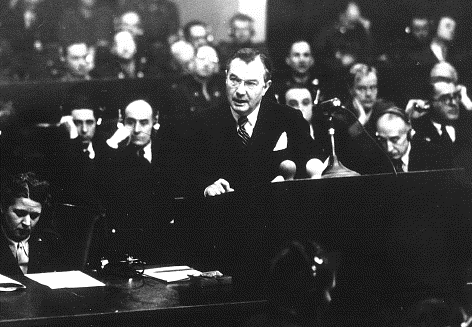By Terance Walsh
Impunity Watch Reporter, Europe
MOSCOW, Russia — The Moscow City Court has upheld a lower court’s ruling to reopen Sergie Magnitsky’s tax evasion case. Natalia Magnitskaya, mother of the late anti-corruption lawyer Magnitsky, had sued a senior Moscow judge for the denial of access to justice and in opposition of Deputy General Prosecutor’s decision to reopen the prosecution of her deceased son last summer. She had claimed that the reopening of the prosecution of her son was a violation of her constitutional rights.

Magnitsky died in a Russian pre-trial detention center two years ago, at the age of 37, after being tortured and denied medical treatment. The Prosecutor General’s Office named Magnitsky’s cause of death “cardiovascular insufficiency.” A hearing was held for her lawsuit on Monday, 24 October at the Moscow City Court.
A judge of the cassation board said announced the dismissal of Mrs. Magnitskaya’s claim, declaring, “The Tverskoy District Court’s decision to dismiss the complaint is legal and founded.”
When Mrs. Magnitskaya opened her lawsuit she stated her cause of action against Judge Igor Alisov as a “failure to consider her legal action to stop the prosecution by Russian authorities of her dead son.” Magnitsky’s friends have deplored the prosecution as barbaric and medieval.
Explaining the basis of her lawsuit, Mrs. Magnitskaya said, “Judge Alisov, in his position as Chairman of Tverskoi District Court, deprived me of the right to protection from courts. I believe he was obviously aware that this denial of justice was against the law. I consider his actions as a hidden form of mockery and manifestation of his conflict of interest.”
“Earlier, the Deputy General Prosecutor of Russia issued an unlawful and unconstitutional decree to prosecute my dead son making me a participant in that criminal proceeding. The fact that it is directly relevant to my rights is evidenced by summonses for questioning that I have received from Interior Ministry Investigator Sapunova who personally prosecuted my son.”
The plea was returned to Mrs. Magnitskaya without consideration on its merits so she would be allowed to revise and resubmit it.
The Deputy General Prosecutor of Russia ordered the reopening of the prosecution against Magnitksy, 20 months after Magnitsky died. Russia allows cases against deceased defendants to be reopened upon request from their surviving relatives to reinstate and rehabilitate their bad name.
The newly opened case, however, was not initiated upon request of the family and was not for the purpose of rehabilitating Magnitsky’s name. The case was reopened using evidence the Russian President’s Human Rights Council determined was fabricated and led by the same team of investigators that the Human Rights Council concluded.
Prior to Magnitsky’s death he testified against these very investigators, claiming theft of his client’s companies and embezzlement of $230 million of public funds.
Russian authorities decided to prosecute Magnitsky on “trumped up charges” instead of going after the officials named in the Human Rights Council’s report. As part of the investigation Mrs. Magnitskaya was summoned to be questioned as a witness by the same officials who arrested and tortured, or authorized the torture of, her son.
Magnitsky’s former employer, Hermitage, called Mrs. Magnitskaya’s summons to testify “a cynical and cruel action designed to suppress his family’s efforts in seeking justice. The officers who tortured Magnitsky in custody, now, almost two years after his death, are trying to pressure his relatives into withdrawing their public call for justice.”
Mrs. Magnitskaya filed a lawsuit on 5 September 2011 against the Deputy General Prosecutor for prosecuting her son after his death. She claimed that reopening a case against a deceased defendant was only legal upon request from the defendant’s family.
Mrs. Magnitskaya said, “The criminal prosecution of my son is being resumed under the pretext of restoration of his right to rehabilitation. At the same time, the re-investigation will be carried out by the same investigators of the same department, with whose participation my son was brought to death…. It is not only that I don’t trust them, but I also fear them”
On 12 September 2011 Judge Igor Alisov refused to consider Mrs. Magnitskaya’s lawsuit. He reasoned that Mrs. Magnitskaya was not party to the proceedings and failed to show how the reopening of her son’s case violated her rights. Then on 20 September 2011 Mrs. Magnitskaya filed suit against Judge Alisov for refusing to hear her case.
Judge Alisov had previously absolved all officials of liability for the alleged $230 million they had embezzled. Instead the embezzlement was pinned on an ex-convict in a proceeding in which no evidence was examined. No compensation for the $230 million was asked of the convict.
For more information please see:
Law and Order in Russia — Magnitsky’s Mother Sues Russian Judge For The Denial Of Access To Justice — 24 October 2011
RAPSI — Magnitsky’s Mother Complaint Over Case Resumption Dismissed — 24 October 2011
RIA Novosti — Court Upholds Reopening Of Magnitsky’s Case — 24 October 2011
Law and Order in Russia — Sergei Magnitsky’s Mother Accusses Russian General Prosecutor Of Murder — 26 September 2011
Emerging Markets — Mother To Be Questioned By Her Son’s Alleged Killers — 6 September 2011
RT — Case Reopening ‘Immoral” – Mother — 6 September 2011



